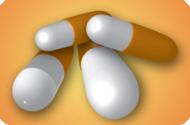
HOMEOPATHY'S INEFFECTIVENESS SAVES LIVES

Hundreds of people owe their lives to the fact that homeopathy is completely ineffective. This past weekend, groups of people around the world participated in an event that, at first glance, may seem sinister or even cult-like.
Analysis by Benjamin Radford
They gathered in 25 countries (in an event known as "The 10:23 Campaign") and took massive overdoses of medication -- not to harm themselves, but to prove a point. No one suffered ill effects because the medications were homeopathic, have no active ingredients, and are therefore worthless. Real drugs of proven efficacy can be dangerous or lethal in high enough doses; homeopathic remedies cannot.
This is not the first time that someone has tried to overdose on homeopathic medications. In January 2010 Alexa Ray Joel (daughter of Billy Joel) tried to overdose on a homeopathic medication in an apparent suicide attempt. She, also, was just fine.
 UK Government Study: Homeopathy Worthless
UK Government Study: Homeopathy Worthless
Skeptical and scientific organizations have long decried ineffective and alternative medicines. D.J. Grothe, president of the James Randi Educational Foundation which participated in the event, said he hoped to educate the public about homeopathy.
"We believe consumers deserve the truth about homeopathic products," he told Discovery News. "Most have no active ingredients whatsoever, they've been proven not to work any better than plain water or sugar pills, and they aren't tested or approved by any U.S. health agency. Using fake medicine to treat real health problems can be dangerous. When parents need something to help their child's cough or break a fever, they trust that what they get from their drugstore is real medicine."
Homeopathy was invented around 1796 by a doctor named Samuel Hahnemann. He believed that homeopathic medicines become more effective the more they are diluted. Homeopathic solutions are often so literally watered-down that they don't contain a single molecule of the original medicine or substance: the patient is drinking nothing but water. Homeopathic medicines have not been shown to work better than placebos, yet many people use and endorse homeopathy.
Last year the British Science and Technology Select Committee conducted a comprehensive study into whether homeopathy has any scientific validity. The report was devastating: "homeopathy is not efficacious, and explanations for why homeopathy would work are scientifically implausible." Even professional homeopathic practitioners admitted that basic claims made about homeopathy have never been tested nor proven.
Homeopathic practitioners insist that homeopathy works, and that anyone who says otherwise is either misinformed or secretly lobbying for the pharmaceutical industry (never mind that homeopathic remedies are a half-billion-dollar industry).
You can test the homeopathic principle yourself easily at home: The next time you reach for a pain reliever, instead of swallowing the pill, crush it, pick out a few of the smaller crumbs of medicine, and take those. According to homeopathy, the less you take of the medicine, the more effective it will be.
Consumers, of course, have the right to choose remedies that don't work, and manufacturers of homeopathic products can remain in business as long as they admit on the label that "This product is not intended to diagnose, treat, cure, or prevent any disease." Caveat emptor.
Еще новости




